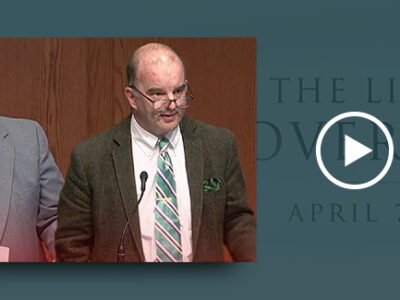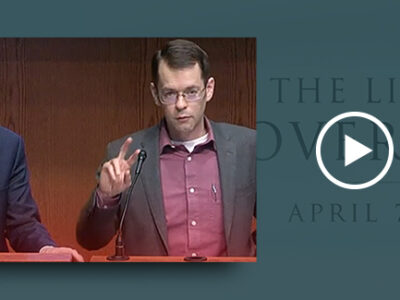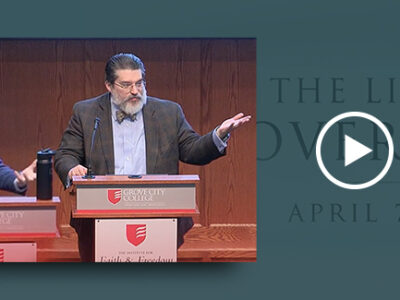Arguably, the world’s leading apostle of hate is Iranian leader Mahmoud Ahmadinejad—few do the task better, especially toward Jews. On Dec. 12, 2006, at a two-day gathering of Holocaust deniers, Ahmadinejad pledged that “the Zionist regime [Israel] soon [will] be wiped out and humanity will be free.”
Amadinejad long ago proved himself an implacable pariah, as was widely understood by everyone, from former President George W. Bush to leading 2008 Democratic presidential candidates like Senator Hillary Rodham Clinton and Senator Joe Biden. Well, maybe not all Democratic presidential candidates.
Senator Barack Obama judged Ahmadinejad worthy of a healthy dialogue. It was a point on which Obama was not shy in his pursuit of the 2008 presidential nomination. To the raised eyebrow of his main competitor for the nomination—Senator Clinton—Obama implored America to talk to the Iranian madman, to give peace a chance, to not overreact to the Iranian threat.
Specifically, on May 18, 2008, Obama, in arguing for the need to sit down with Ahmadinejad, explained: “Strong countries and strong presidents talk to their adversaries. That’s what Kennedy did with Khrushchev. That’s what Reagan did with Gorbachev. That’s what Nixon did with Mao. I mean think about it: Iran, Cuba, Venezuela—these countries are tiny compared to the Soviet Union. They don’t pose a serious threat to us the way the Soviet Union posed a threat to us.”
This was a stunning statement. Certainly, yes, the likes of Iran are smaller than the Soviet Union and, indeed, do not pose the same kind of threat. Yet, in many ways, Iran poses a graver threat, given that its leader has made more serious, direct, even suicidal threats than Khrushchev or Gorbachev or Mao ever made—against Israel, against America, and in very real attacks on U.S. troops reconstructing Iraq.
The fact is that one crazy man named Ahmadinejad, with one nuclear missile, is an extremely dangerous prospect, regardless of the size of his nation. Size of territory is rarely a determinant of threat; if it were, Canada and the United States, two of the largest countries, would be at war constantly—and neither Germany (about the size of Wisconsin) nor Japan would have been a concern in World War II, nor the tiny nations in the Balkans that launched World War I.
The McCain campaign, rightly, turned the Obama statement into a political ad, titled, “Tiny,” which carried the banner, “DOESN’T POSE A SERIOUS THREAT.” The ad concluded with a narrator who intoned, “Obama—dangerously unprepared to be president.”
Nonetheless, the American public elected Barack Obama, not John McCain, as its next commander-in-chief. In response, Mahmoud Ahmadinejad immediately fired off a letter of congratulations to the president-elect, which began:
In the name of God, the Compassionate, the Merciful
Mr. Barack Obama
President-elect of the United States of America
I congratulate you on having gained the majority of the votes of those who took part in the election. As you know, the chances that God gives to his subjects pass swiftly…. Use this chance to serve to the extent you can. And leave a good name behind for yourself.
Ahmadinejad employed the salutation that Islamic heads of state use to greet one another in official correspondence, “In the name of God, the Compassionate, the Merciful.” Curiously, the American left, which had just spent eight years launching into fits of rage anytime God was mentioned in the same sentence with George W. Bush, was silent at the Iranian intransigent invoking the Almighty in commending the new president. Things were different now—with Barack Obama as president.
So different that in his first days in office the new president extended a unique olive branch: Obama gave his first exclusive interview to a top Arab news source, the Dubai-based Al-Arabiya, where he seemed to apologize for the policies of his predecessor. “[A]ll too often the United States starts by dictating,” said Obama, promising he would be different. “So, let’s listen.”
The new president said he would employ “a language of respect,” in contrast to Bush phrases like “Islamic fascism.” He pledged to talk. “I do think that it is important for us to be willing to talk to Iran,” said Obama. “[I]f countries like Iran are willing to unclench their fist, they will find an extended hand from us.”
Ahmadinejad responded the very next day—with a clenched fist.
“Those who speak of change,” said the Iranian leader, in a direct reference to Obama’s campaign slogan, “should apologize to the Iranian nation for their dark background and the crimes they have committed against the Iranian nation.” Americans should “try to repair their past crimes.” The kingpin of the world’s leading terrorist state for 30 years demanded “deep and fundamental” change from Obama and America.
Moreover, the same day that Obama spoke of the need for conciliatory language by America and Israel, both Ahmadinejad and his spokesman reiterated the state’s official position that the Holocaust was “a big lie.” And if that wasn’t enough, the Iranian government went further, asserting that, “This request [by Obama] means Western ideology has become passive, that capitalist thought and the system of domination have failed.”
The Iranians sensed a delicious, victorious weakness in the new president. Iran “listened” to Obama alright, and then snapped the olive branch and tossed a series of verbal hand grenades. The mullahs almost seemed to be having fun with the new president.
But Iran was only warming up. A week after Obama’s gesture on Al-Arabiya, Ahamdinejad delivered another message, on Feb. 3, this one directly to his people. “Dear Iranians, your children have put the first indigenous satellite into orbit,” said the jubilant leader, offering this special gift on the 30th anniversary of the late Ayatollah’s launching of the state’s Islamic-theocratic revolution. “With this launch, the Islamic Republic of Iran has officially achieved a presence in space.”
Ahmadinejad was selling himself short. Iran had achieved much more than that. From Obama’s State Department to the foreign ministries of France and Britain, the peace-seeking world quickly lamented this major step toward a “military nuclear capacity”—specifically, the ultimate ability to deliver a nuclear warhead via an advanced long-range missile. The latest development was “of great concern to us,” said U.S. State Department spokesman Robert Wood.
You bet. In fact, this was the Iranian equivalent of Sputnik. The Ayatollah was surely grinning from the grave.
The launch came as Iran continued to defy U.N. Security Council demands to freeze its nuclear work. It was yet another quick finger in the eye of the new American president, who, according to Ahmadinejad, was now Great Satan’s water-boy. Boasting of his technological achievement, Ahmadinejad looked heavenward: “We have a divine view of technology, unlike the dominating powers of the world”—i.e., the United States—“who have Satanic views.”
And now, the very latest, U.N. officials announced last week (Feb. 19) that Iran has produced enough fissile material to produce an atomic bomb—more material than previously believed, and at a time when (as the Financial Times reported) “the Obama administration is drawing up its policy on negotiations with Tehran over its nuclear program.”
It looks like the new tone in Washington isn’t making much difference.
Why is Mahmoud Ahmadinejad responding to President Obama’s friendly overtures in this way? Because he is Mahmoud Ahmadinejad. And the man in the White House should know better.
We cannot have this kind of naïveté from the leader of the free world. As President Carter learned 30 years ago, the Oval Office is not the place for educating oneself about the world and human nature. This stuff is deadly serious. Enough is enough.




